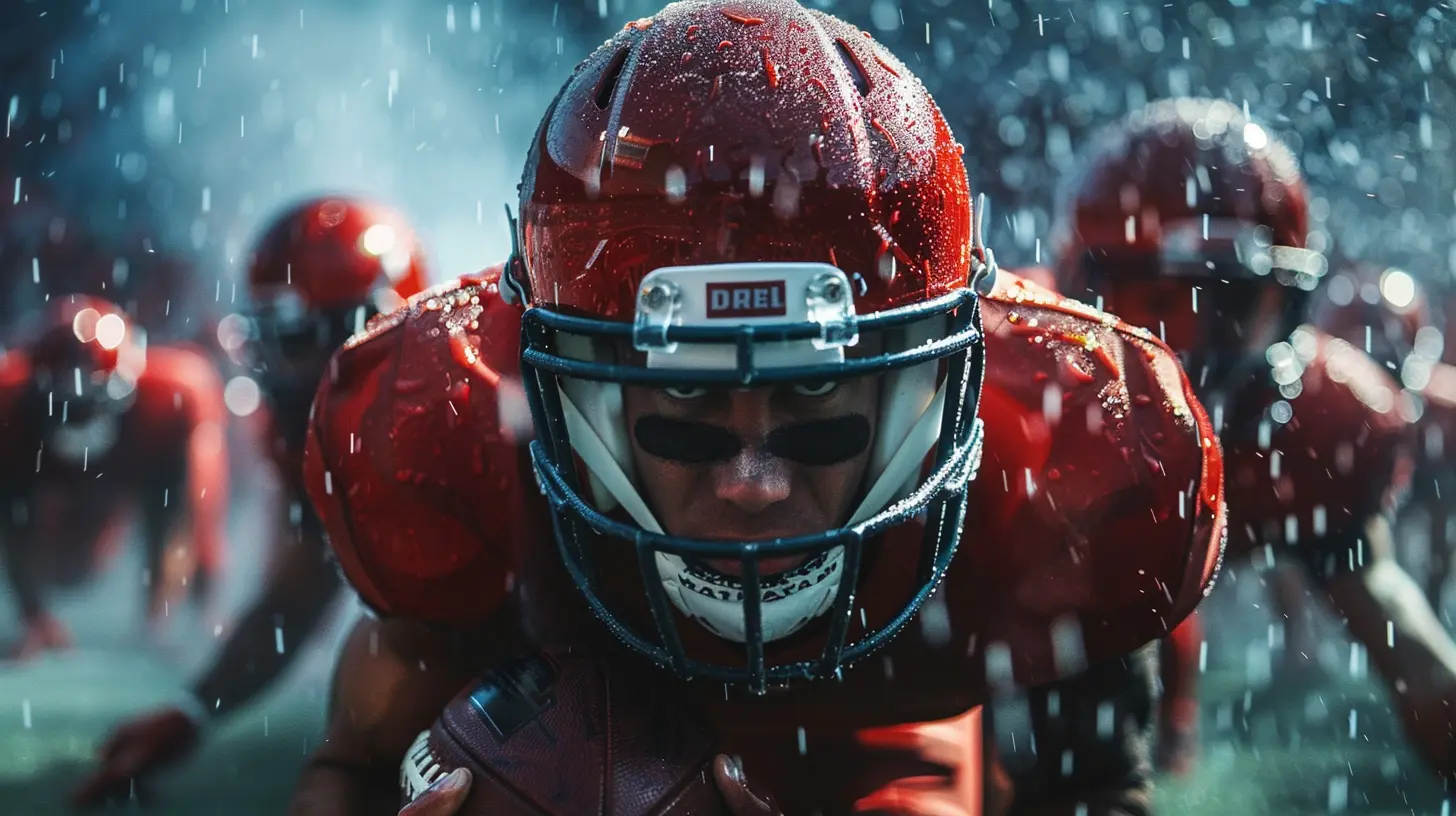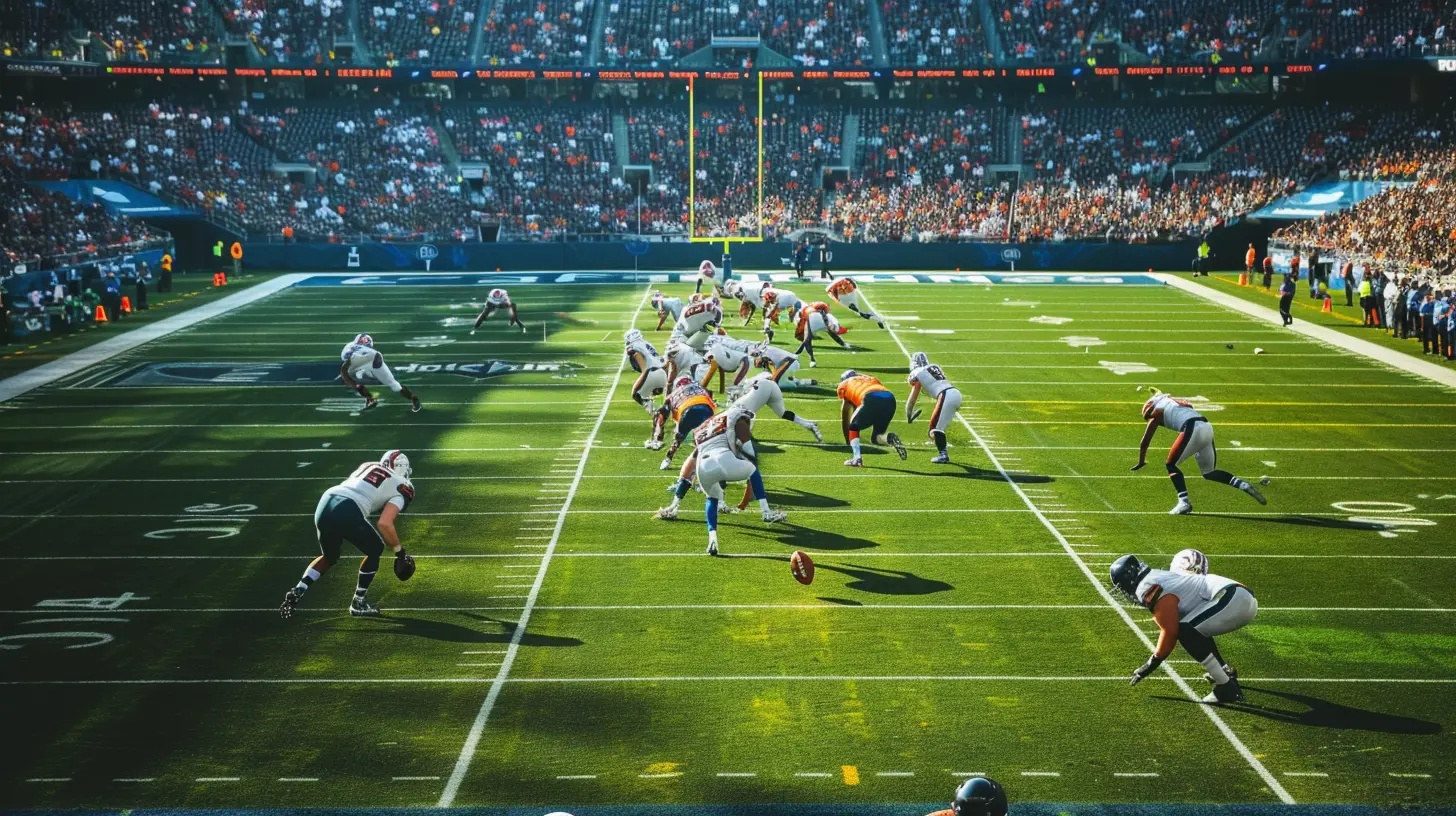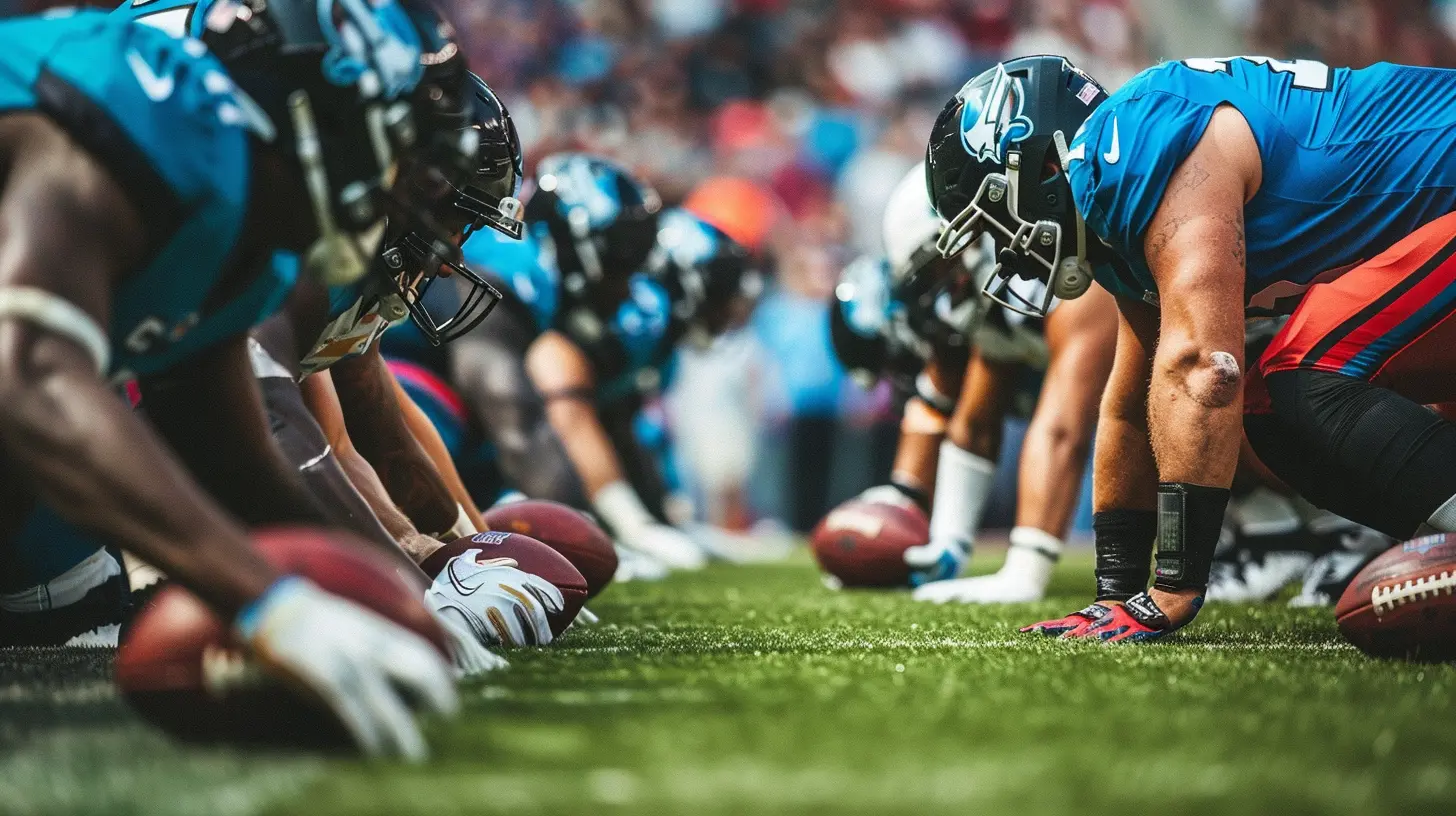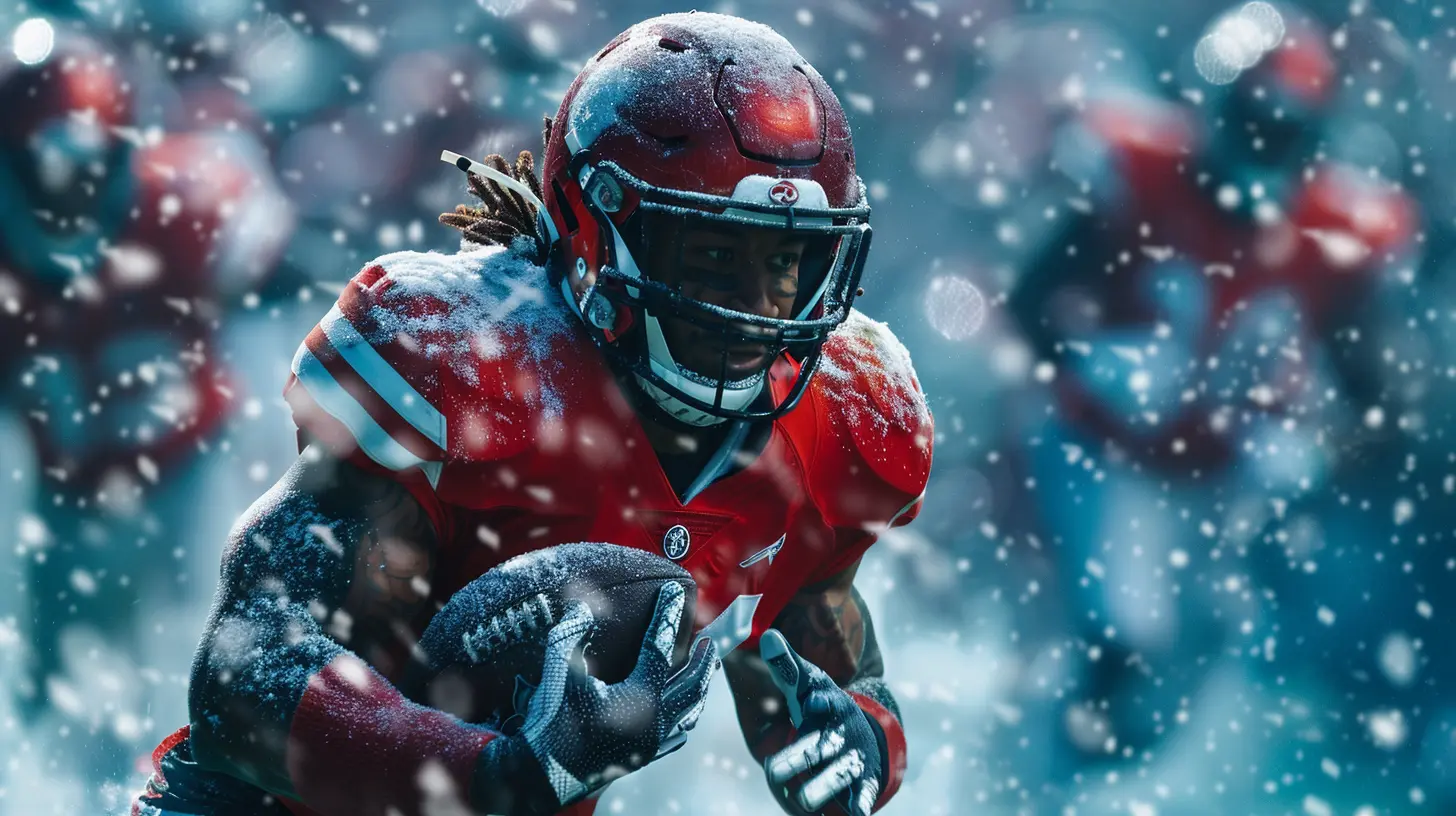How New Rules Are Shifting the Balance Between Offense and Defense
9 July 2025
Let’s face it—sports never stay the same. Rules get updated, strategies evolve, and what worked a decade ago might not even be legal today. But lately, it seems like something bigger is happening. Across multiple sports, new rules are throwing the traditional balance between offense and defense out the window. And whether you're a die-hard fan or a casual spectator, you've probably noticed that games feel different—faster, higher-scoring, more exciting... or depending on your view, more lopsided.
So, what’s really going on here? How exactly are these rule changes altering the playing field? And who benefits—those lighting up the scoreboard or the ones trying to stop them?
Let’s break it down.
Offense Is King: Why Scoring Has Skyrocketed
Ever watched a game lately and thought, “Dang, where’s the defense?” You’re not alone. In many leagues—whether it's the NFL, NBA, NHL, or even soccer—rules are tilting heavily in favor of offensive play. And it’s not by accident.1. More Points = More Viewers
Let’s call a spade a spade—more scoring equals more excitement. Leagues know that casual fans don’t want to watch a slugfest ending 7–3. They want fireworks. Think buzzer-beaters, 50-yard touchdown bombs, last-minute goals. The more thrilling the game, the more eyeballs on the screen.So leagues have adjusted rules to make it easier for offense to shine. For example:
- NFL: New rules protect quarterbacks and receivers like never before. You can’t hit 'em high, you can’t hit 'em low, and often, defenders are flagged just for trying.
- NBA: The “freedom of movement” rules have limited defensive hand-checking, opening the floor for offensive players.
- NHL: Crackdowns on obstruction penalties make it easier for fast, skilled forwards to dominate.
- Soccer: VAR and “light-touch fouls” often favor the attacking side, leading to more penalty kicks and scoring chances.
These seemingly small tweaks have led to massive shifts in how games are played.
Defense Can’t Catch a Break
Defenders today are basically playing a different sport compared to their predecessors. You could argue they’ve become the underdogs on the field—and it’s not because they’ve gotten worse.2. Handcuffed by the Rulebook
Rules are supposed to create fairness, but in many cases, they’ve done the opposite. Defenders have to be almost perfect, while offensive players get all the cushion and benefit of the doubt.Take the NFL, for example. A cornerback trying to cover a speedy receiver can’t touch him beyond five yards. And if he mistimes his jump by a millisecond? Pass interference. That’s a 50-yard penalty, folks. In what other sport does that kind of yardage change hands for a bang-bang play?
Same in basketball. Try to defend a quick guard with even a light hand-check, and you’re whistled. In soccer, a defender brushing against a striker can get punished with a game-changing penalty.
Defense isn't just hard nowadays—it's nearly impossible.
The Rise of Analytics and Fast-Paced Offenses
It’s not just the rulebook that’s changing things. The game is being reinvented behind the scenes, too. Analytics and data-driven strategies are pushing offenses to become more efficient, faster, and more lethal.3. Offenses Are Smarter, Not Just Stronger
Thanks to analytics, coaches now know which plays bring the highest return. In basketball, that means more three-pointers and spacing. In football, it’s all about maximizing possessions, fourth-down aggressiveness, and YAC (yards after catch). Heck, even baseball has seen small-ball replaced with launch angles and exit velocity.Offenses today are like well-oiled machines. They’ve adapted faster than their defensive counterparts, who are often left chasing shadows.
Is It Good for the Game?
Here’s the million-dollar question: Is this shift in balance actually good?If you love high-scoring thrillers and records being broken every week, it's a dream come true. But if you’re nostalgic for the grit and grind—the days when you could win a game with pure defensive dominance—you might feel shortchanged.
4. The Impact on Strategy
Coaches are being forced to rethink everything. You can’t just “build a brick wall" on defense anymore. You need more creativity, more adaptability.- Zone defenses in the NBA? Being torn apart by sharpshooters.
- Blitz-heavy schemes in the NFL? Risky when quarterbacks can unload in two seconds flat.
- Physical soccer defenses? Useless if one touch in the box equals a spot-kick.
Defenses need to evolve or get left behind.
How Teams Are Adapting
All is not lost, though. Some teams are getting clever. They're finding workarounds, building defenses that can survive—even thrive—under the new rules.5. Speed Over Size
The era of big, bruising defenders is slowly ending. Teams now want versatile, agile players who can switch, cover space, and anticipate rather than react. The modern defender is part sprinter, part strategist.Even in football, where size once reigned, linebackers today look more like oversized safeties. Defensive ends? Freakish athletes who can drop into coverage if needed.
6. Defense Is Becoming More Mental
With physicality restricted, defenses are relying more on film, instincts, and schemes. Confuse the offense, disguise your coverage, rotate at the last second—that’s how you get stops now.Essentially, defense has become a game of chess. You can't just overpower people anymore. You have to outthink them.
The Role of Officiating in the Shift
Let’s not ignore the human element. Referees and umpires have more power than ever to shape the game. And the way they enforce rules—or interpret them—often leans toward favoring offense.7. The Whistle Isn’t Neutral
In the age of slow-motion replay and fan outrage on social media, refs are under more scrutiny than ever. And when in doubt, they often err on the side of protecting offensive players. That's not a coincidence; that's survival.- In football, late hits are flagged instantly—even if they’re borderline.
- In basketball, star players get “the benefit of the doubt” on contact.
- In soccer, a slight brush in the box can lead to a devastating penalty.
The balance has tilted, and the whistle is part of the equation.
Is a Defensive Renaissance Coming?
So, with offenses running wild, is there hope for defenders? Actually, yes. History shows us that when one side of the ball dominates too much, the pendulum eventually swings back.8. Rules Go in Cycles
Leagues don’t want entirely one-sided affairs. As fans start to tire of 140-point NBA games or 5-4 NFL shootouts every week, pressure builds to give defenses a fair shot. We’ve seen rule corrections before—and we’ll probably see them again.Expect to see changes down the road that:
- Re-empower defenders a bit
- Revisit penalty severity (hello, spot fouls)
- Encourage more balance to keep games competitive
How Fans Are Responding
Let’s not forget us—the fans. We’re not just watching; we’re reacting. Social media is filled with debates over whether the games are better or worse than they used to be.Some love the new energy. Others miss the old-school grind.
9. Nostalgia vs. Now
Here’s a question: Are games actually better—or just different?Yes, scoring is up. Yes, the pace is crazy. But is there something lost when defense can't shine the way it used to?
Think about it—would Michael Jordan have averaged 40 PPG under today’s hand-check rules? Would the 2000 Ravens even make the playoffs in today’s NFL? These are the kinds of “what ifs” that make sports so endlessly fascinating.
Final Thoughts: The Game Is Always Evolving
At the end of the day, sports aren't meant to stand still. The rules aren't designed to be sacred texts; they’re meant to evolve with the times. And right now, we’re living in an offensive renaissance—a period where creativity, speed, and scoring are king.But don’t count defense out just yet.
Coaches, players, and analysts are already crafting the next generation of defensive schemes. The mind games are intensifying. The chess match continues.
This shift isn’t the end of defense—it’s just forcing it to get smarter, faster, and more adaptable.
And honestly? That might be the most exciting part.
all images in this post were generated using AI tools
Category:
New RulesAuthor:

Preston Wilkins
Discussion
rate this article
1 comments
Scout Wheeler
Great read! It's fascinating to see how these new rules are changing the game dynamics. Can’t wait to see how teams adapt and the impact on future matchups!
July 26, 2025 at 2:41 AM

Preston Wilkins
Thank you! I’m excited to see how teams will innovate under these new rules as well!


